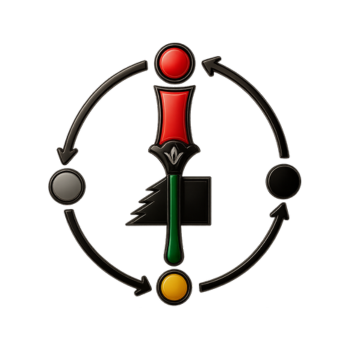-
“In traditional African society, to call someone by name is to acknowledge their human existence. It means identifying them as people known to come from a specific village, a specific ethnic group, lineage and family, people with specific ancestral ties. The point is to situate the person in time and space, simultaneously, in order to acknowledge “their whole being.” To name is to bring into existence, in the sense of revealing genealogy, a process of evolution. Whoever wants to call an unknown person simply calls out to them without naming them. Those who want to call someone they hardly know, look at the person without talking, but while pursing the lips. When people wish to call someone they have known just a few days, they call him or her while pointing with the right hand, or making a gesture with the right hand. When people want to call someone well known to them, they call him by name, adding his titles, if he has any. “That is how Maweja Nangila caused humans to emerge, and at this time in creation, humans were entirely like Maweja.”
“Ever since the time of pharaonic Egypt, speech has been endowed with sovereign power in black Africa. Here, from time immemorial, there have been civilizations, not oral civilizations (as sundry foreign anthropologists and ethnologists keep writing), but civilizations of the Word as creative energy. Here the historical accident of orality is merely secondary. Sometimes the oral tradition coexists with a written tradition, sometimes not. Ancient Egypt, in particular, was a high civilization of the Word as powerful and “magical” force, complete with its hieroglyphic writings.”
Theophile Obenga
“African Philosophy: The Pharaonic Period: 2780-330 BC”
Chapter II: “Ontology and Cosmogenesis”
Page 89

